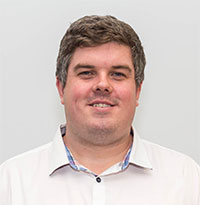 There is no question that the attacks on Paris last weekend were horrific, tragic and terrifying to watch unfold.
There is no question that the attacks on Paris last weekend were horrific, tragic and terrifying to watch unfold.
I visited Paris for the first time just last year and to think of that vibrant, beautiful city on its knees is just awful.
Unfortunately, alongside the tragedy that surrounds events such as what happened in Paris on the blackest of Fridays comes another dangerous element: individual opinions.
The rise of social media means that more and more, we as individuals add to the story.
Some of it is extremely positive – quite often, we see examples of extraordinary community spirit following tragedies such as this. We see the world coming together as one, united in grief and support for those affected.
Unfortunately, we also see the other side of the public response.
We see ‘friends’ on Facebook posting hate fuelled rants, often uninformed, and creating exactly what those behind atrocities such as Paris want: division.
Often, they are ‘friends’ that we suddenly see in a whole new light. People we thought were level-headed, understanding and sensible, who leave facts to one side and, in truth, embarrass themselves publicly.
We see others on Facebook and Twitter who want to criticise the media for rolling coverage or sending key network talent to Paris, and in the same breath be critical of the media’s lack of coverage of other recent tragic events.
The media often can’t win in situations like this – the fine line between too little and too much is very easy to cross given all of us respond differently to such major stories. Some want to be glued to rolling coverage, others simply want to look away.
We all have a remote control for a reason. Use it instead of your keyboard and I guarantee you’ll feel better.
And then of course there’s the widespread social media comments about the lack of media coverage, public compassion and general discussion about recent tragedies in other parts of the world such as Baghdad and Beirut.
Oddly enough, most of those people complaining about ‘selective compassion’ and essentially trying to make others feel bad about showing grief for the victims of the attack in Paris, themselves didn’t say a word about Baghdad and Beirut after the tragedies happened.
Why not? Why is it only when another tragedy occurred that they suddenly made their feelings so public?
Truth is that the incidents in both Beirut and Baghdad, for example, were actually covered in the wider media.
But these days, more than ever before, news directors and editors know what their viewers, listeners and readers respond to.
The truth is that when a city like Paris is attacked, we do feel a greater sense of grief.
That is not to say that one person’s life is more important than any other, but when attacks occur in cities that we know well, we feel a greater attachment.
When attacks occur in cities that operate very similar to the way we do here at home, it has a deeper impact.
It seems that attacks like the one on Paris last week bring out the best and worst of us.
There is absolutely no question that Waleed Aly owned the week as far as public comment was concerned.
His brilliant editorial on ‘The Project’ on Monday night was poignant, spot on and clearly addressed the reality of what we confront. In four minutes of TV, he explained the situation better than anyone has previously. If you haven’t seen it, I urge you to find it online.
https://www.youtube.com/watch?v=XXUZjyZVj6s
Do we have a reason to live with a degree of fear?
Of course we do.
These are frightening times, and the blunt reality that you could simply be enjoying a concert, or having a meal at a cafe, and then face an act of terror is indeed a scary situation that the events of last week truly bring home.
But giving ISIL what they want, which is division and fear, should not be our response. We need to be bigger, braver and more informed than that.

Troy Dodds
Troy Dodds is the Weekender's Managing Editor and Breaking News Reporter. He has more than 20 years experience as a journalist, working with some of Australia's leading media organisations. In 2023, he was named Editor of the Year at the Mumbrella Publish Awards.
